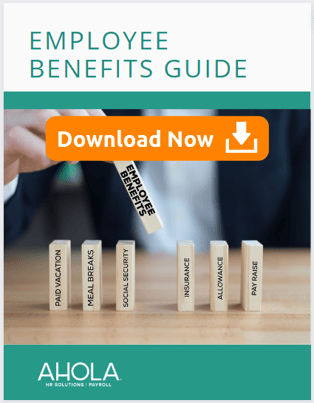Strategic Employee Benefits Planning
In the dynamic landscape of employee benefits, simply offering health insurance and retirement plans is no longer sufficient. Employers are now challenged to provide more diverse and creative benefits packages, both to stay competitive in the talent market and to comply with evolving legal obligations. To ensure your benefits strategy aligns with the needs of your workforce, consider the following key questions and insights:
1. Health benefits
As health care costs are projected to increase by 4.4% in 2021, it's crucial to stay ahead. Evaluate the importance of health insurance to your employees and assess participation rates. Consider various health benefit options, such as different plan types and savings accounts. For applicable large employers under the Affordable Care Act, efficient administration is essential.
2. State-mandated employee leave
Be aware of state-specific leave requirements, whether it's paid sick leave, family leave, or other mandates. Understand if the mandated time off is paid or unpaid and adjust your policies accordingly.
3. Financial wellness
Understand the financial priorities of your workforce, from home-buying to retirement savings. Address concerns about student loan debt, assess the generosity of your 401(k) match, and provide access to educational resources for financial stability.
4. New laws relaxing 401(k) standards
401(k) Standards: Stay informed about new federal laws like the SECURE Act, designed to simplify retirement plans for small employers. Be aware of IRS rules, such as those simplifying hardship withdrawal standards for 401(k) participants.
5. State-sponsored retirement plans
State-Sponsored Retirement Plans: Know the requirements of states like Illinois, Oregon, California, and Connecticut, which mandate employers to offer qualified retirement savings plans. Ensure compliance with state-sponsored plans or participate in auto-enrollment programs where required.
6. Benefits communication
Benefits Communication: Communication is key. Ensure benefits information is easily understandable, accessible online, and that benefits elections are straightforward during onboarding and open enrollment.
Additional Considerations:- Regular Evaluation: Periodically reassess your benefits strategy to adapt to changing employee needs and legal requirements.
- Consultation: Seek advice from benefits experts for a comprehensive evaluation of your benefits strategy.
To ensure a competitive benefits package, employers should consider health insurance options, state-mandated leave requirements, financial wellness programs, new 401(k) standards, state-sponsored retirement plans, and effective benefits communication. Regular evaluation and consultation with experts are essential for adapting to changing needs and legal obligations., a carefully designed benefits strategy not only meets legal requirements but also boosts employee happiness and involvement. By consistently reviewing and adapting your approach, you can guarantee that your benefits offerings stay competitive and in line with the changing needs of your workforce.






.png)
.png)

Reply a Comment